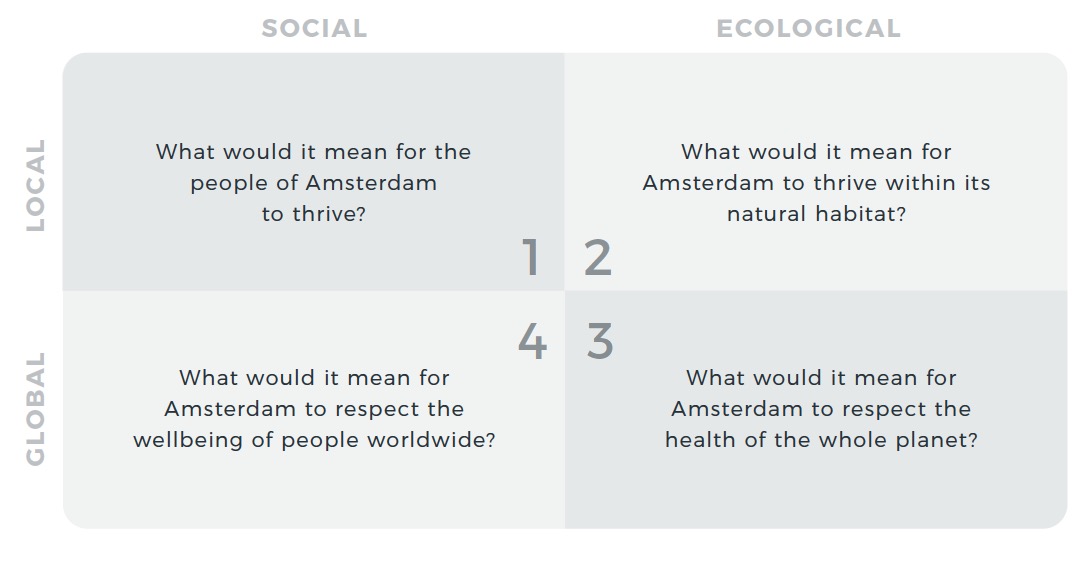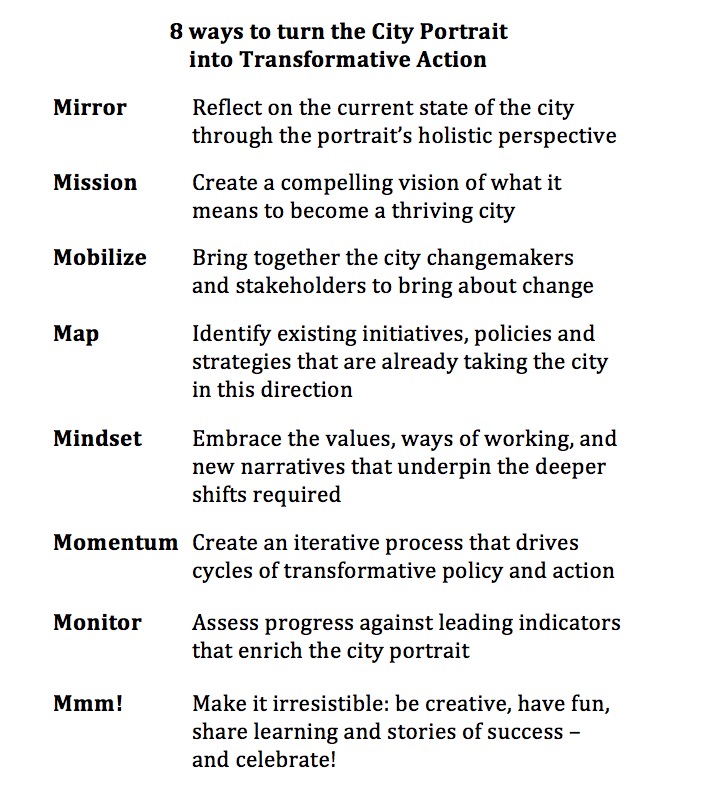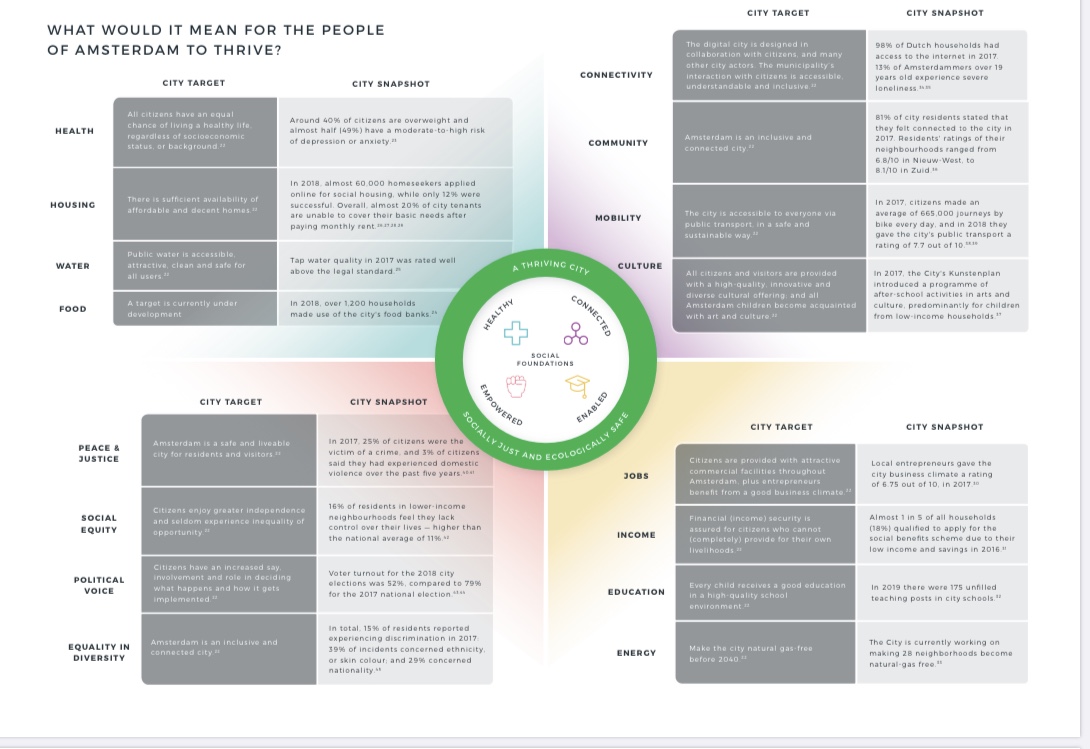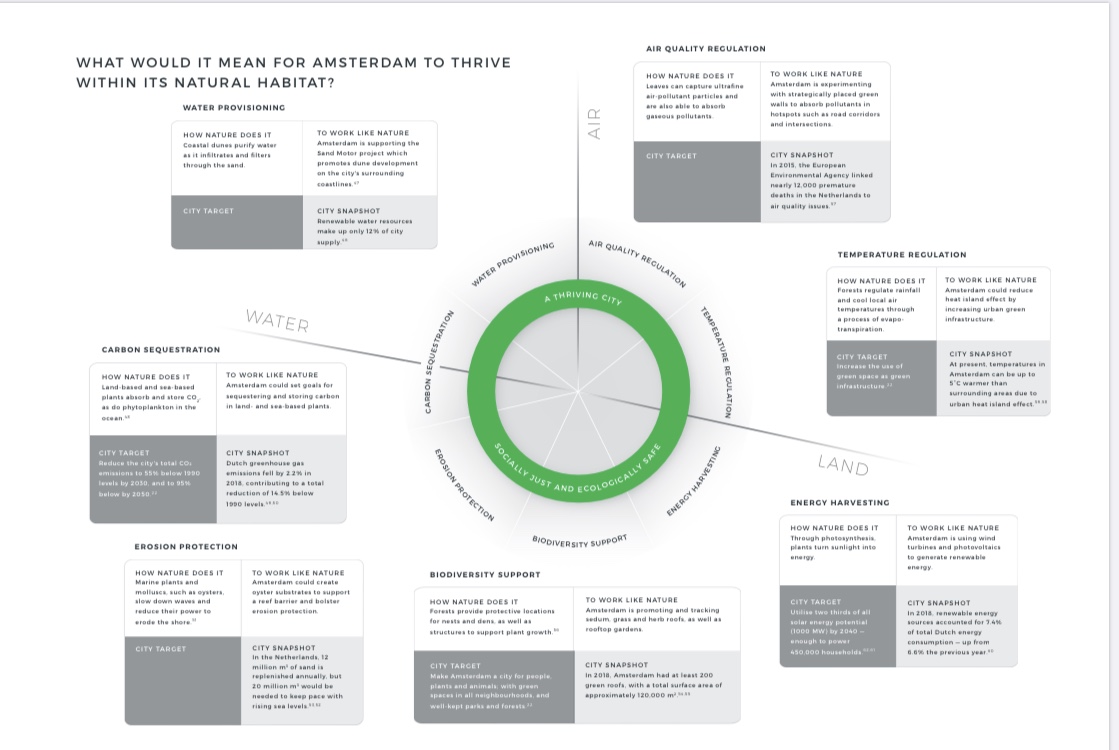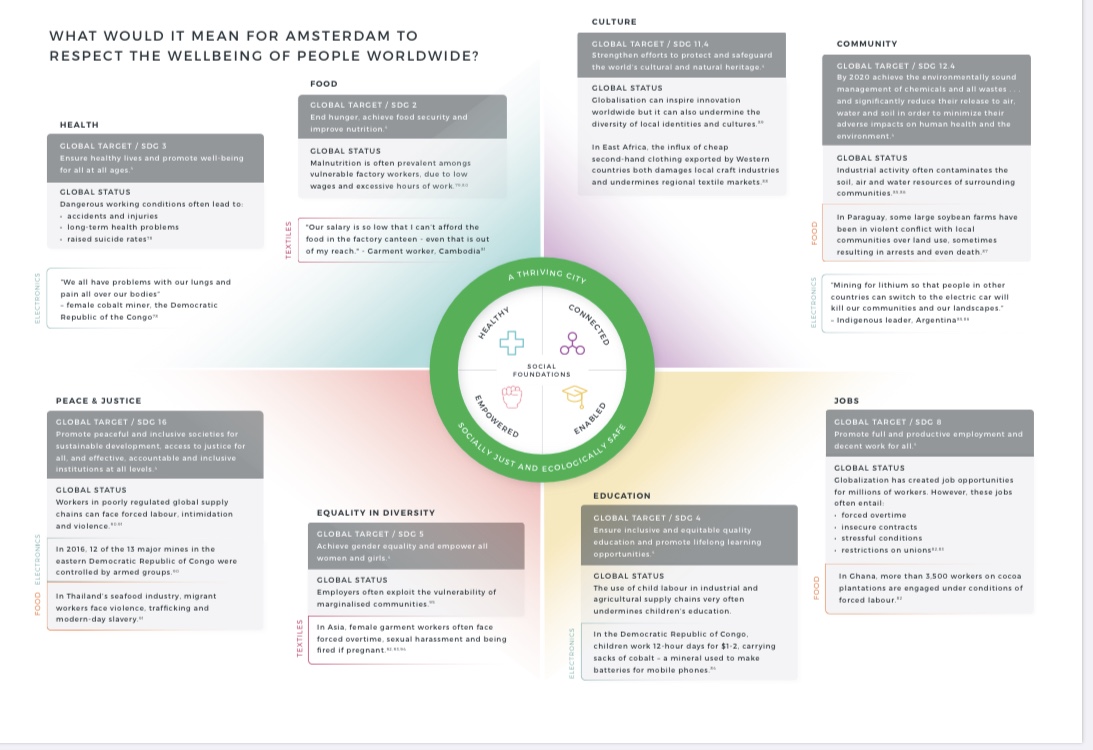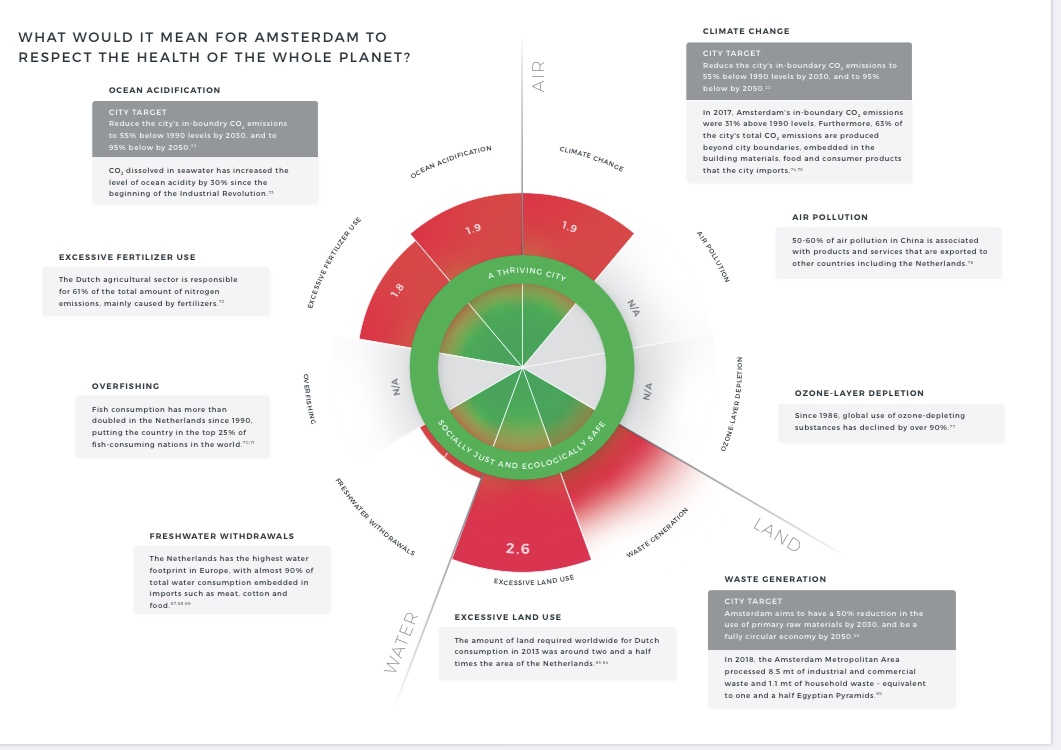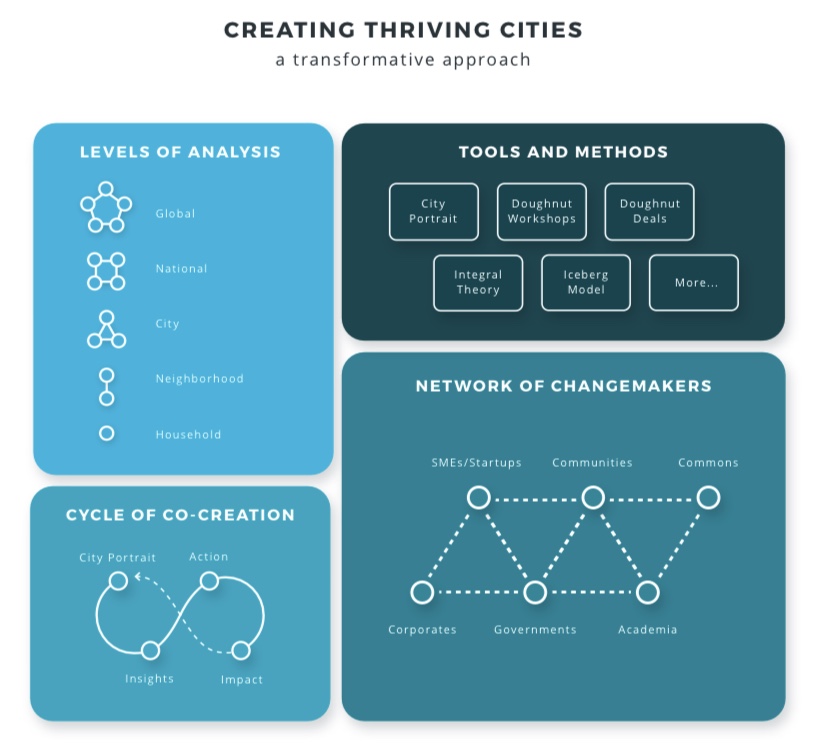 Kate Raworth’s work on the Doughnut Economy over the last few years has been nothing short of extraordinary. She has torn up the economic text books of the last 150 years and asked some much better and kinder questions about the future we need. It is so exciting to read that in collaboration with Janine Benyus, using biomimicry, the model is now being implemented in the City of Amsterdam. It opens up a world of possibility for a reimagined future, in which our world becomes regenerated for both people and the planet itself.
Kate Raworth’s work on the Doughnut Economy over the last few years has been nothing short of extraordinary. She has torn up the economic text books of the last 150 years and asked some much better and kinder questions about the future we need. It is so exciting to read that in collaboration with Janine Benyus, using biomimicry, the model is now being implemented in the City of Amsterdam. It opens up a world of possibility for a reimagined future, in which our world becomes regenerated for both people and the planet itself.
Kate’s book and then her blog deserve serious attention and, in my opinion, a Nobel Prize! There is no way in this short blog that I can even begin to explore the exponential potential of the work, but I do want to highlight some of the key issues. So many people are saying that we simply can’t go back to how things were prior to Covid-19. If we’re serious about that statement then we need to begin thinking about how we will experiment with alternative models and ways of being together that will be good for the future of the environment and create a much more socially just framework for the global family of humanity. I love this model that Kate offers in thinking about what is important for a place – it contains four key aspects. Local/Global – Social/Ecological.
We can apply this model to any city or given area, and it allows the people of that place to work with the uniqueness of their geography and demography. I believe it is a really helpful and holistic model when thinking about population and planetary health.
There are then several aspects if a group wish to move from understanding their region to bringing about transformative action. Kate calls these the 8 M’s.
The model then includes 4 really helpful sets deeper questions to create the framework around the local/global – social/ecological foundations.
Firstly – what does it mean for people to thrive within their own Geography?
Secondly, what does it mean for the local environment/ecology to thrive and regenerate?
Thirdly, how do the local people contribute to the wellbeing of the wider family of humanity? How can they ensure they are good global citizens?
Fourthly, how does the locality contribute to the wellbeing of the whole planet, by how it behaves?
This way of working takes serious collaboration, co-production and real change-making. I love the way that Kate illustrates this:
Here in Morecambe Bay, we would employ things like ‘The Poverty Truth Commission’ and ‘The Art of Hosting’ to ensure that every voice is heard and we embrace ‘otherness’. It will involve partnership with the team at ImaginationLancaster, The Social Inequalities Research Centre and the Health Innovation Campus at Lancaster University, Cumbria University, The Eden Project and anchor institutions like our District Councils, County Councils, the NHS, BAE, EDF, School Federations, the CVFS and the network of SMEs. It will also mean developing the kind of culture I talk about here.
Out of the ashes of this devastating time, a phoenix can rise of a regenerated society and ecology. Are we up for it? I sincerely hope so and I wonder in how many places this can become possible. We need to create online and then, once lockdown is over, more real, radical spaces of hospitality and collaboration as we work together for the future that is calling us.

